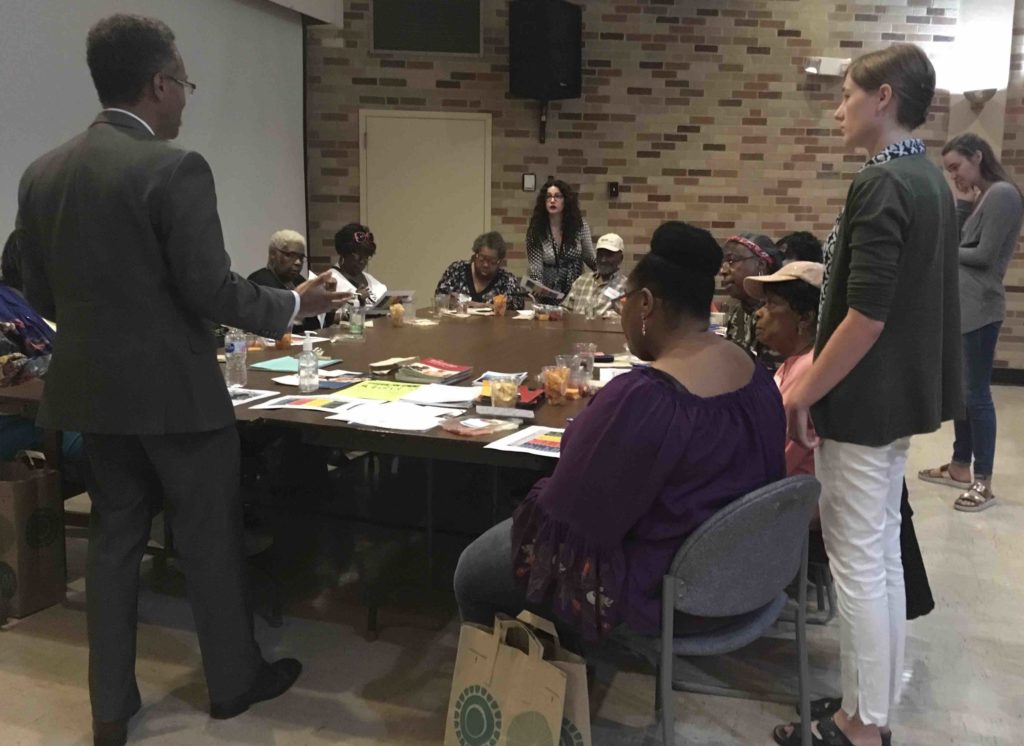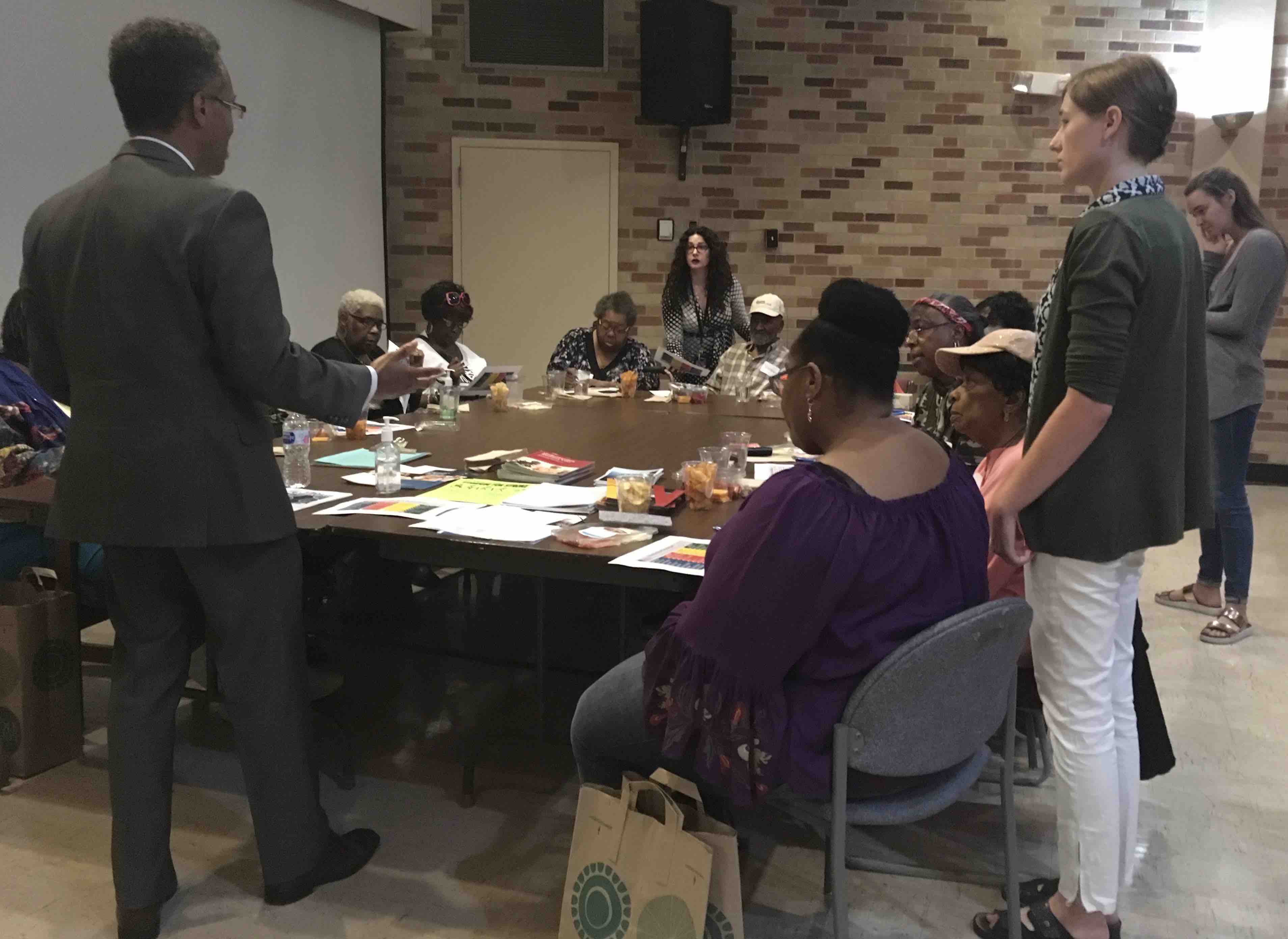by Dr. Whitney Postman, PhD/CCC-SLP

We wish to introduce the Diverse Elders Coalition to our “Senior Social Group For Brain Health As We Age!” Founded and led by Dr. Whitney Postman, Ph.D./CCC-SLP, Assistant Professor and Director of the Neuro-Rehabilitation of Language Laboratory at Saint Louis University’s Department of Communication Sciences and Disorders, this group was forged as a community partnership between Saint Louis University’s Geriatric Workforce Enhancement Program, Northside Senior Center, and CareSTL Health, a Federally Qualified Health Center serving predominantly African American and economically disadvantaged residents of North St. Louis. Our aim is to reduce health disparities in African American elders who may be at risk for cognitive decline, given the overwhelming evidence that minority elders experience greater prevalence but inadequate detection of dementia, increased numbers of preventable hospitalizations, and higher healthcare cost burden.
Our weekly gatherings of 10 to 12 African American elders, mostly women, are held on the hallowed grounds of the legendary Homer G. Phillips Hospital. Last year, a magnificent documentary entitled “The Color of Medicine: The Story of Homer G. Phillips Hospital” was released. This award-winning film narrates the history and legacy of the premiere medical training center for African American physicians, nurses, and other health professionals before its 1979 forcible closing. The symbolism of this setting is meaningful, as it demonstrates respect for the cultural heritage of our participants. Our group is actively addressing and correcting the accumulation of a lifetime of racial health disparities in aging populations, at the very site that was constructed in The Ville neighborhood of North St. Louis in 1937 to address and correct racial health disparities.
With her Research Assistants Sydney Rosenthal, Rebecca Ferron, Kailin Leisure, Laura Sankey and Samantha Thompson, Dr. Postman leads structured group sessions designed to stimulate and engage participants, while providing an optimal social learning environment that is dynamically responsive to the expressed wants and needs of our participants and informed by the superheroic staff of CareSTL Health. As requested by our participants, sessions follow the theme of “Brain Health As We Age” with special attention to issues that disproportionately affect African American elders. Together we explore brain health throughout the aging process with enjoyable activities such as “Brain Jeopardy,” and in discussions on relevant subjects such as hearing loss as a risk factor for dementia; the relationship of chronic conditions such diabetes, cardiovascular and respiratory diseases to dementia risk; and dementia typology, including distinctive characteristics of Alzheimer’s, Vascular, Frontotemporal and Lewy Body dementias. Concepts such as “cognitive reserve” are defined in plain accessible language, and supported by literature from the National Institutes of Health, the Alzheimer’s Association and other authoritative sources that is shared with our participants at each group session. Our participants never leave our group sessions empty-handed!
Our lively social setting is conducive to addressing quality of life issues such as grief and trauma, which are known risk factors for cognitive decline. As a means to advocate for participants in other areas such as management of diabetes or asthma, group involvement contributes to participants’ sense of control over their health as they age. Special guests have included a Stroke Neurologist from Washington University’s Department of Neurology, a care consultant from the Alzheimer’s Association Greater Missouri Chapter, an Occupational Therapist and Social Worker from Memory Care Home Solutions, and a professor of Nutrition & Dietetics from Saint Louis University. We hope that the comprehensive and culturally sensitive approach of our “Senior Social Group For Brain Health As We Age” here in North St. Louis can serve as a model for overcoming barriers to care for underserved diverse aging populations across the nation.
The opinions expressed in this article are those of the author and do not necessarily reflect those of the Diverse Elders Coalition.

